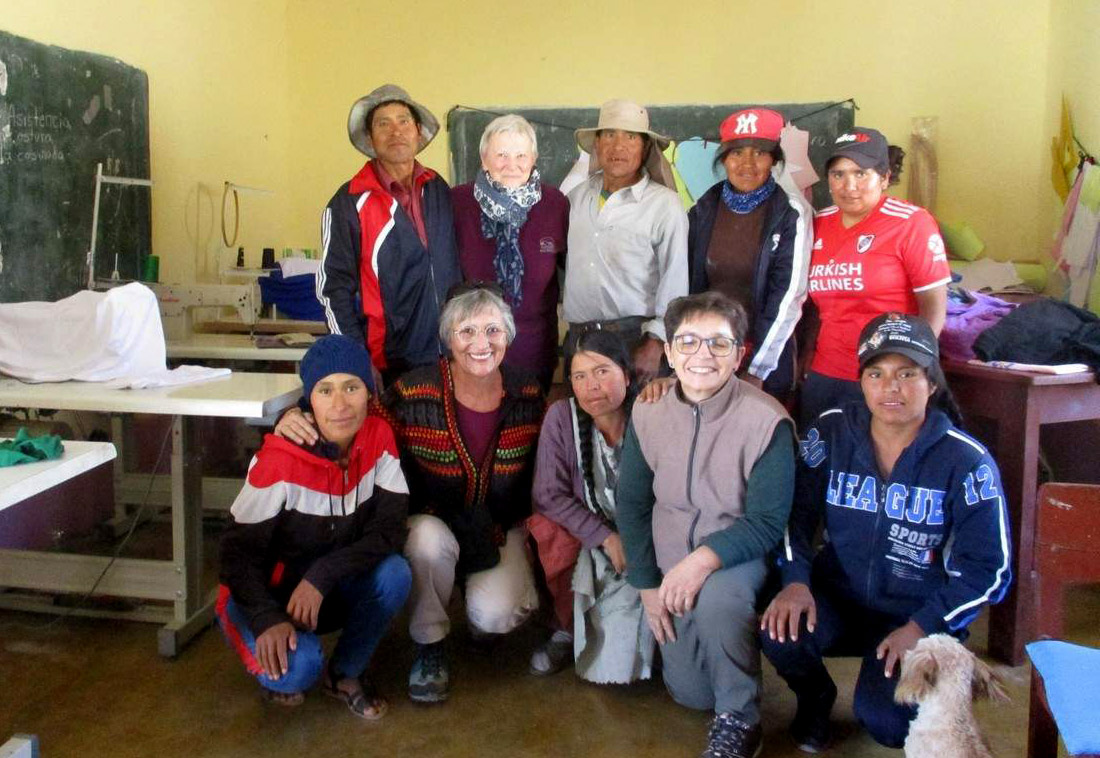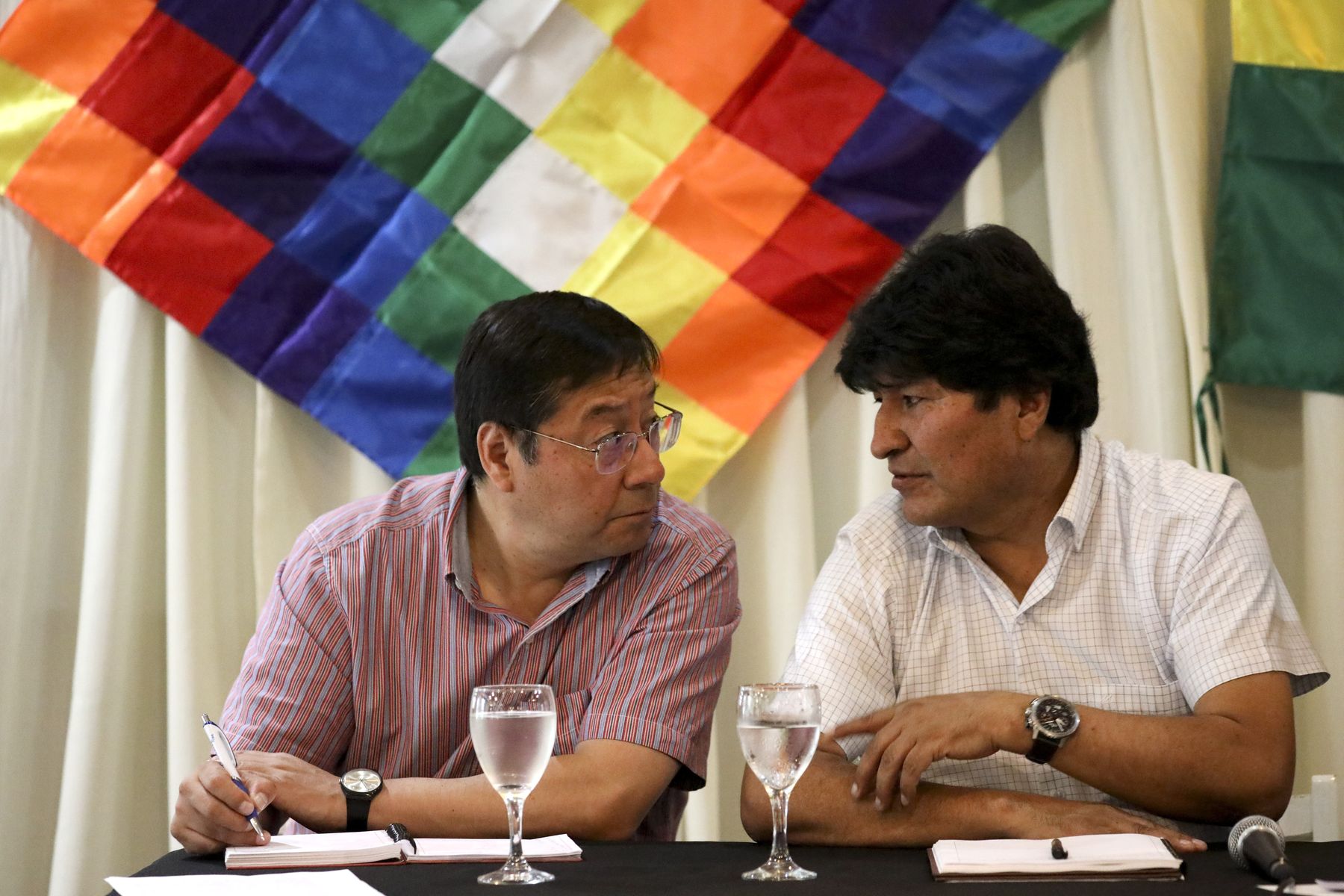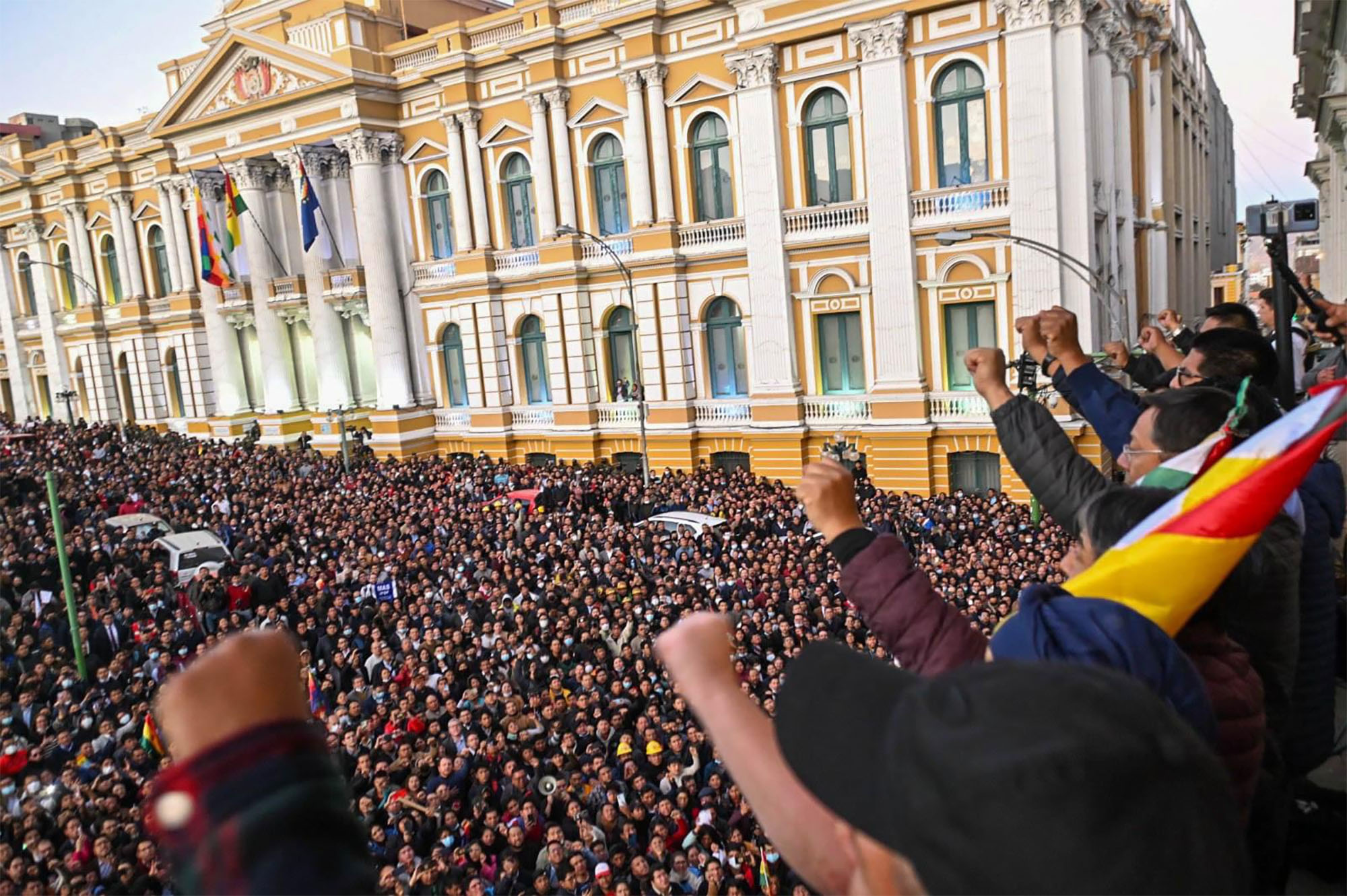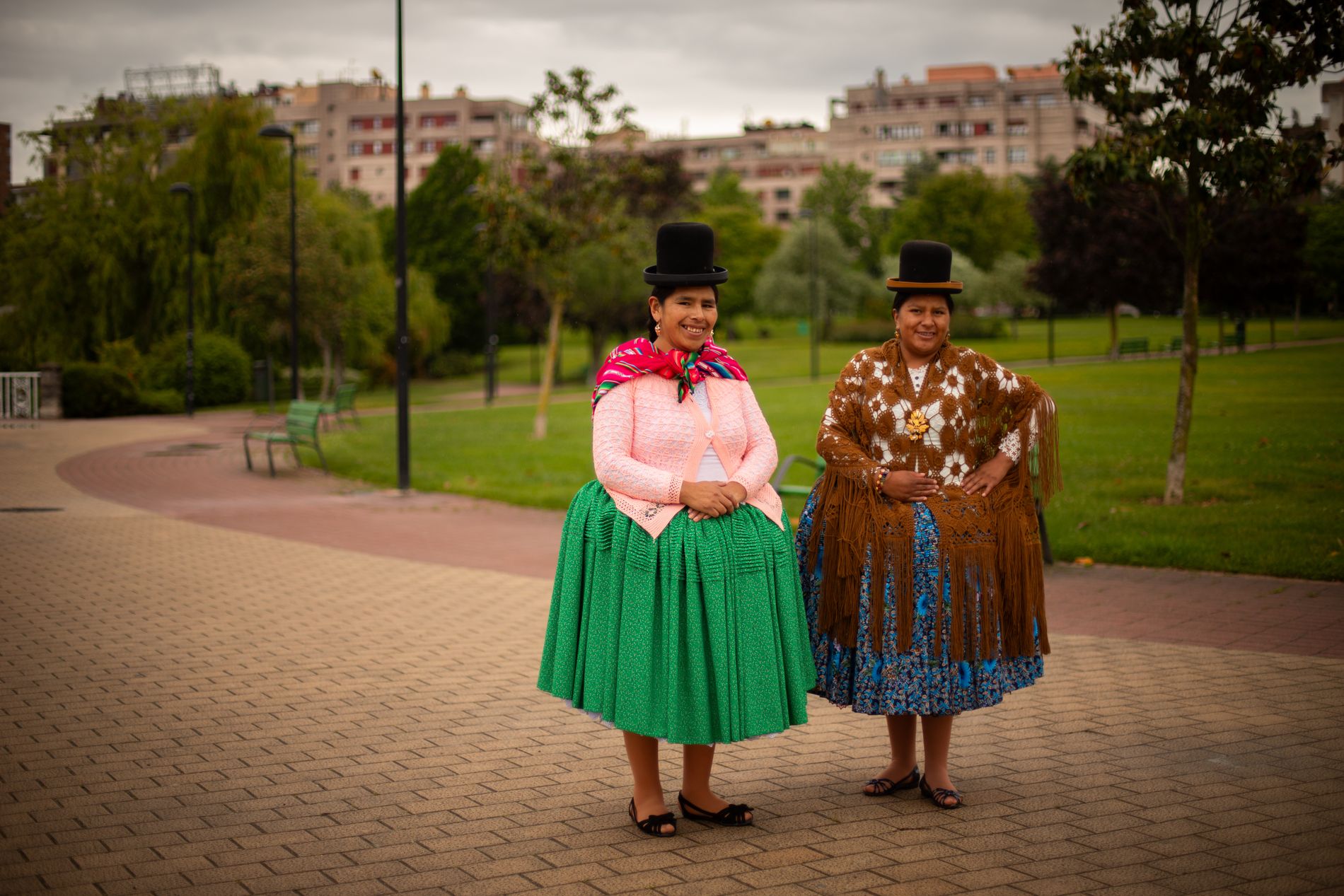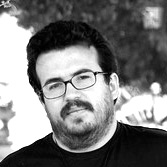“Management is not sexy, we are more attracted to the culture of resistance”
- From 2009 to 2014 he has lived in La Paz and worked very intensively in the Government of Bolivia. Having spent one year in Mexico, he has returned to the Evo Morales Government to provide assistance for the referendum campaign. The editorial Hiru will soon publish the book Scenarios and Horizons of Time Change in Latin America. He also works as a political analyst in various media.
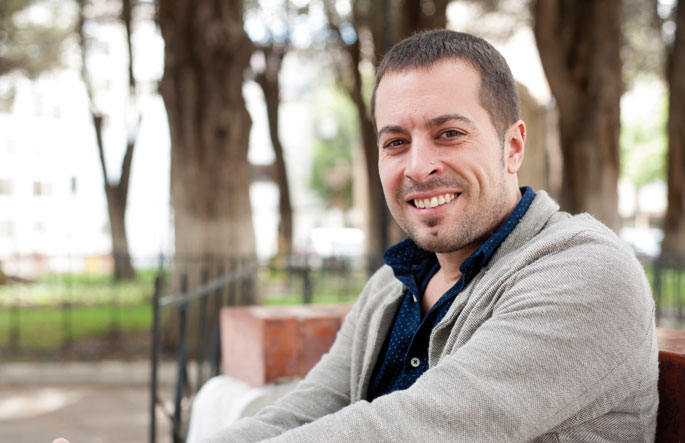
You've had a long journey before you reach Bolivia, how did it look like?
It's hard to summarize. I could define myself as an internationalist militant. I learned it in the Basque Country, as a militant of the Abertzale left, but also as an internationalist militant of Latin America. I first traveled to Cuba in 1997. Just as Cuba has taught me a lot, Venezuela has taught me a lot since the first time I was in 2003. I was indebted to Bolivia, because it was the only leftist change process I didn't know. In short, I came to spend a few months, to get to know the process, and it caught me, I fell in love.
Here are the victories mentioned, less in your hometown. Has that also been attractive?
Yes, but, using the words of Arnaldo Otegi, milit to win, although on the left, in general, we have the culture of defeat. These Latin American processes have taught me that if you really want to change your society and regain your sovereignty at all levels, you have to take power. Power is abstract, but at least you have to take government. Then you realize you have a government, but you don't have all the power. This is a tough fight in the economy, and especially in the cultural sphere. How is hegemony constructed? That's the question. Building an alternative proposal for a people, winning the government, fighting for political, economic and media power -- all of that has been done here, and I feel privileged to have contributed more than half the time this process has lasted. In addition to being proud of having accepted me, here I am taking lessons for the process that is going to take place one day in Euskal Herria, with differences.
When you talk about Latin America, you often mention that management entails wear and tear. In the Basque Country the Basque left has managed the institutions, has there also been erosion?
“Latin America is the only one in the world to build an alternative to neoliberalism”
I said management is not sexy. We prefer the culture of resistance, it's more attractive. The Government always suffers a degree of wear and tear. There comes into play something very well theorized by Alvaro García Linera (Vice-President of Bolivia): the creative tensions of the revolution, alluding to tensions within the country. If you're looking for an exit, the tensions help you move forward. One of the tensions is called hegemonic flexibility in the face of the firmness of the social core. That is, how he develops his project, how he internalizes other social sectors (middle classes, business sectors...) without making too many concessions to his basic project, which he supports in the hard core so that he does not lose that core.
In Euskal Herria, if the sociological Abertzale Left – understood in a broad sense – is in crisis, I do not think it is a management problem. Although certain things have certainly been done badly in institutional management, good political management has been done in the institutions. I think we're in a complicated moment of transition. The era of political and military confrontation is closing, and it seems to me that we have been left without elements of cohesion. All of a sudden we're realizing that we have different tactics and strategies inside the Abertzale left.
“I complain about some EH Bildu managers trying to seduce the PNV”
This has also happened in Bolivia: when everyone had a common enemy, the Right supported by the United States, there was a clear confrontation and cohesion was rapid on the social base. When the right was imposed politically and militarily, tensions began to emerge between September 2008 and January 2009 (the new Constitution was adopted by an absolute majority). The same project is no longer being defended, but rather corporately: the miners start protecting theirs and the peasants, and rapid mobilizations against the government were also carried out. Now the problems are solved. We are experiencing that transition between different ways of carrying the strategy. I was complaining, for example, that some EH Bildu officials, over and over again, were trying to persuade the PNV. In Catalonia, for example, with such a great dynamic of civil society, the small and large bourgeoisie felt compelled to climb the train of sovereignty. These conditions are not in the Basque Country.
As in other countries in Bolivia, the figure of the leader is fast, it can be thought that it is too fast.
In Latin America, in the end, all these processes have generated dependence on the single leader. The clearest case is that of Venezuela, with Chávez, who has been arrested. After his death there was a great crisis. Of course imperialism used that and Maduro was asked to be Chávez, but he cannot be. That is a very complicated debate for the Left. My politically correct answer would be to opt for collective leadership, for the need for political training ... And that's all true, but when these leaderships appear, they're unique in the world. Fidel in Cuba, Chavez in Venezuela and Evo in Bolivia. We also need leaders like Evo to synthesize all the struggles.
Would it be good to have such a leader also in the Basque Country?
There's one. We are looking forward to Arnaldo Otegi leaving jail. Why? Although we may think that this is a collective direction, Otegi has proven to be a leader with the capacity to synthesize struggles and resistances. When you hear Arnaldo Otegi, you feel replaced. Not only will he look for exits, but at a given moment it is a device that helps to click and that attaches a horizon or a project with a social base.
Should the Abertzale Left learn more about the processes in Latin America?
One of the great theorists in Latin America, Carlos Mariategui, always said that we must create our own socialist projects, that we must make heroic creations and not copies, not calcos ones. That said when Latin America always looked at Europe, and look at how Europe is now!
“The tendency of some towards social democracy in the countries of northern Europe is a big mistake”
I believe that the Abertzale Left has been lucky because it has drunk a heterodox political culture from Marxism and national liberation movements. That is wealth to cope with the current situation. The tendency of some towards European socialdemocracy (of the countries of northern Europe) is a great mistake. One can always learn from everything, including the left of northern Europe, but socialdemocracy has already died as a political project, even though We have been trying to save those values. The only region in the world that constructs an alternative to neoliberalism is Latin America. Here we are debating the sovereignty and democracy that interests us so much, and the borders that are beyond the trap imposed on us by liberal and bourgeois democracy. We have a lot to learn to build our project, without having a copy.
There is talk of a regression of progressive governments in the rebound by the electoral defeats suffered in countries like Argentina or Venezuela. Do you think they're in crisis?
Marx said that history moves like waves, that there are advances and setbacks. It is true that we were going up, and suddenly we got into the delay, since Chávez's death, but it has not been so. Argentina takes me away more than Venezuela, because it is the first government that has been lost since 1998. Added to this is the sharp decline in the price of oil and the suffering of economies based on the sale of raw materials.
Although we have built a post-neoliberal scenario capable of regaining sovereignty and distributing wealth, we have not created an indispensable cultural transformation. It must be acknowledged that capitalism continues to be hegemonic on a cultural level, in Latin America and throughout the world. Now they will be new challenges. A famous painting says: “When we had answers, the questions changed us.” And that's what happened to us. We in Latin America need to update the project, because those who now have the right to vote must be re-enchanted, as the generations who have not known neoliberalism are voting.
Zubiak eraiki Xiberoa eta Boliviaren artean. Badu jadanik 16 urte Boliviaren aldeko elkartea sortu zela Xiberoan. Azken urteetan, La Paz hiriko El Alto auzoko eskola bat, emazteen etxe baten sortzea, dendarien dinamikak edota tokiko irrati bat sustengatu dituzte.
The sub-provincial elections in Bolivia, held on March 7, can be read as a radicalization of the conflict scenarios, with the MAS being the most hegemonic party at the national level, but with a right with a strong and radicalized presence in the department of Santa Cruz and in... [+]











